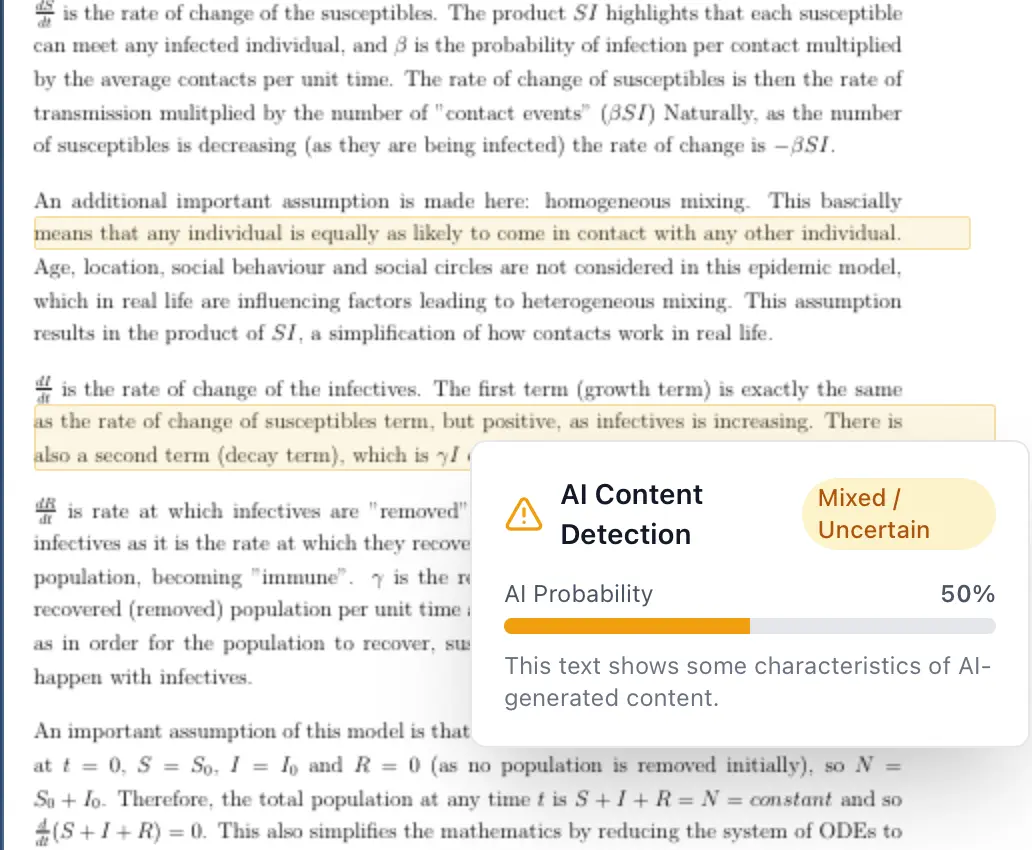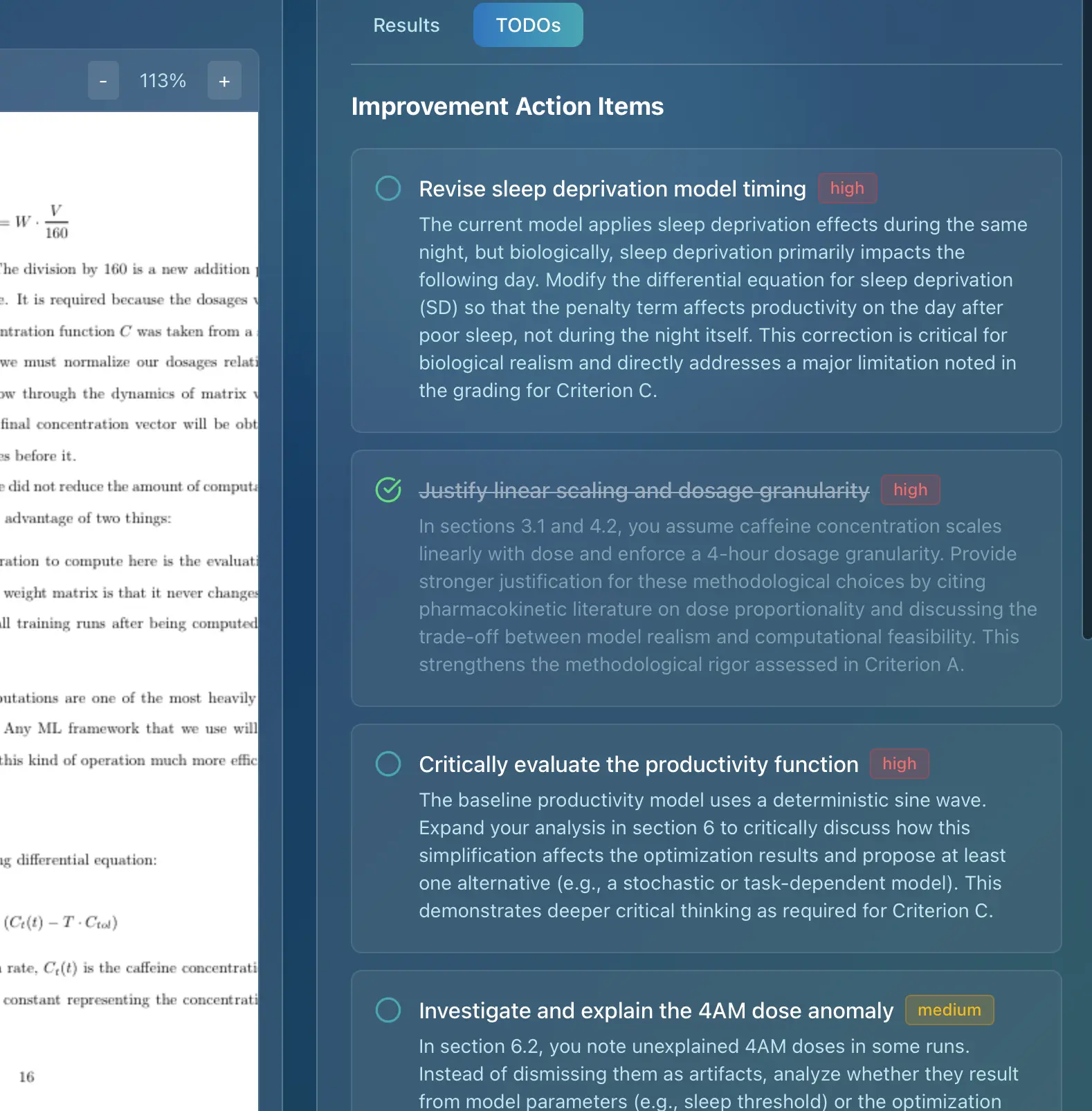The Ultimate Guide to IB Acronyms: From TOK to WA
Navigating the International Baccalaureate (IB) Diploma Programme can feel like learning a new language. The sheer number of acronyms – from TOK to EE to IA – can be overwhelming for students, teachers, and even parents. This guide is your comprehensive resource to demystify the IB lexicon. We'll break down the most common IB acronyms, explain what they mean, and provide actionable tips to help you succeed in each area. Whether you're a student striving for a perfect score or a teacher looking for ways to better support your students, this guide will equip you with the knowledge you need to confidently navigate the IB world.
Why Understanding IB Acronyms Matters
The IB Diploma Programme is rigorous and demanding, but understanding the terminology is the first step towards mastering the curriculum. Knowing what each acronym represents allows you to focus your efforts effectively, understand assessment criteria, and communicate clearly with teachers and peers. This guide will help you avoid confusion and ensure you're always on the right track.
Struggling with IB Assessments?
Get instant, detailed feedback on your work with AI that understands IB criteria.

Core IB Acronyms: A Comprehensive Breakdown
Let's dive into the most frequently used IB acronyms, categorized for easier understanding:
Core Components
- TOK: Theory of Knowledge. This interdisciplinary subject encourages critical thinking about the nature of knowledge itself. It's a cornerstone of the IB Diploma Programme, requiring students to explore different ways of knowing and areas of knowledge. Success in TOK often hinges on your ability to analyze knowledge claims and connect them to real-world examples.
- EE: Extended Essay. A 4,000-word independent research paper on a topic of your choice, related to one of your IB subjects. The EE is a significant undertaking that requires careful planning, research, and writing skills. It's an opportunity to delve deeply into a subject that interests you and demonstrate your research abilities.
- CAS: Creativity, Activity, Service. This experiential learning component requires students to engage in activities that promote creativity, physical activity, and community service. CAS aims to develop well-rounded individuals who are active and engaged members of society. Documenting your CAS experiences and reflecting on your learning is crucial.
Assessment Components
- IA: Internal Assessment. These are subject-specific assessments that are marked internally by your teacher and then externally moderated by the IB. IAs can take various forms, such as essays, experiments, presentations, or performances. Understanding the specific IA requirements for each subject is essential for success.
- EA: External Assessment. These are assessments that are marked externally by IB examiners. This typically refers to the final exams at the end of the two-year program.
- WA: Written Assignment. This is a type of IA that is common in many subjects, particularly in the humanities. It typically involves writing an essay or report based on research or analysis.
- HL: Higher Level. Refers to IB courses taken at a more advanced level, requiring more in-depth study and a greater workload. Students typically take three HL subjects.
- SL: Standard Level. Refers to IB courses taken at a less advanced level than HL. Students typically take three SL subjects.
- PAMO: Predicted Achievement Maximum Outcome. This is the highest grade a student can achieve on an IA or EE, based on the teacher's prediction.
General IB Terms
- IBO: International Baccalaureate Organization. The governing body that develops and administers the IB programmes.
- DP: Diploma Programme. The two-year IB programme for students aged 16-19.
- MYP: Middle Years Programme. The IB programme for students aged 11-16.
- PYP: Primary Years Programme. The IB programme for students aged 3-12.
- Subject Guide: The official document from the IBO that outlines the curriculum, assessment requirements, and grading criteria for each IB subject. This is your bible!
- Grade Boundaries: The minimum marks required to achieve a particular grade in an IB subject. These boundaries can vary from year to year depending on the overall performance of students worldwide.
Common Challenges and Mistakes
Many students struggle with specific aspects of the IB Diploma Programme. Here are some common challenges and how to overcome them:
- TOK Essay Confusion: Students often struggle to understand the abstract concepts in TOK and apply them to real-world situations. Solution: Practice analyzing knowledge claims from different perspectives and use concrete examples to illustrate your points.
- EE Procrastination: The Extended Essay can feel overwhelming, leading to procrastination. Solution: Break the EE down into smaller, manageable tasks and set realistic deadlines for each stage of the process.
- CAS Documentation Neglect: Students sometimes fail to adequately document their CAS experiences. Solution: Keep a detailed journal of your CAS activities, including reflections on your learning and personal growth.
- IA Misinterpretation: Misunderstanding the specific requirements for an IA can lead to lower scores. Solution: Carefully read the subject guide and consult with your teacher to ensure you fully understand the assessment criteria.
Pro Tip: Get AI-Powered Grading
Stop second-guessing your grades. Get instant feedback aligned with official IB rubrics.

Advanced Tips and Strategies
To truly excel in the IB Diploma Programme, consider these advanced strategies:
- Develop Strong Critical Thinking Skills: The IB emphasizes critical thinking across all subjects. Practice analyzing information, evaluating arguments, and forming your own conclusions.
- Master Time Management: The IB is demanding, so effective time management is crucial. Create a study schedule and stick to it.
- Seek Feedback Regularly: Don't wait until the last minute to get feedback on your work. Ask your teachers for feedback on your drafts and use it to improve your performance.
- Connect with Other IB Students: Collaborate with other IB students to share ideas, discuss concepts, and support each other.
- Understand the IB Learner Profile: The IB Learner Profile outlines the qualities of an ideal IB student. Strive to embody these qualities in your academic work and personal life.
Technology and Modern Assessment: How AI is Transforming IB Grading
The landscape of education is constantly evolving, and technology is playing an increasingly important role in assessment. AI-powered tools are emerging to help teachers provide more consistent, detailed, and efficient feedback on student work.
For example, Marksy is an AI grading assistant specifically designed for the International Baccalaureate (IB). It leverages official IB rubrics to provide instant, accurate, and detailed feedback on student work. This includes rubric-aligned scoring, criterion-by-criterion feedback, and suggestions for improvement.
AI tools like Marksy help ensure fairness and consistency in grading by applying the same criteria to all students. They also save teachers valuable time, allowing them to focus on providing personalized support and guidance to their students. By automating the more repetitive aspects of grading, teachers can dedicate more time to lesson planning, student interaction, and professional development.
Furthermore, AI grading assistants can help students understand exactly how to improve their work. The detailed feedback provided by these tools highlights areas of strength and weakness, allowing students to focus their efforts on areas where they need the most improvement. This can lead to significant gains in student learning and performance.
Conclusion: Mastering the IB Jargon and Beyond
Navigating the IB Diploma Programme requires a solid understanding of its terminology. By mastering the acronyms and concepts discussed in this guide, you'll be well-equipped to succeed in your IB journey. Remember to utilize available resources, seek feedback regularly, and embrace the challenges that come your way. The IB is a transformative experience that will prepare you for success in higher education and beyond.
Ready to take your IB performance to the next level? Try Marksy for free today and experience the power of AI-driven feedback! Sign up for a free trial and discover how Marksy can help you achieve your academic goals.